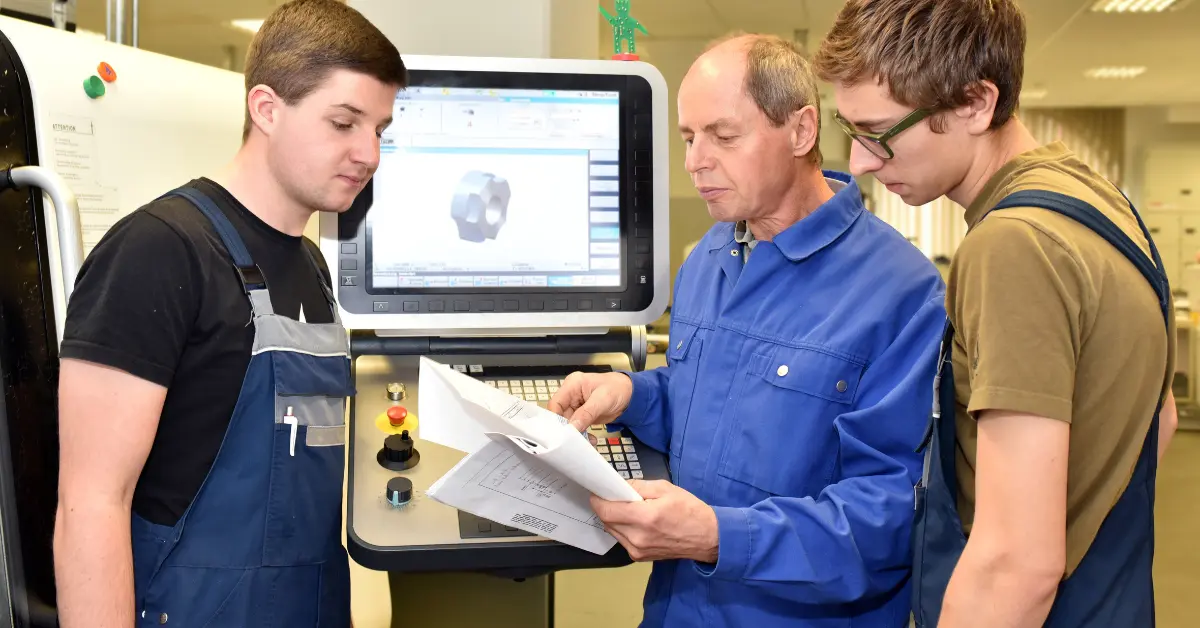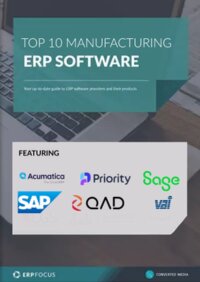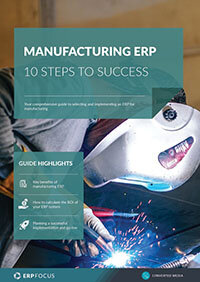Can manufacturing ERP work in a small business?
What challenges will a small manufacturer face when implementing a manufacturing ERP, can it be done successfully and produce a strong ROI?
Manufacturing ERP systems work well in many small businesses and already provide sufficient return on the investments those businesses committed. So, of course, the answer is yes.
That said, there are some unique challenges a small manufacturer must work through. The selection of ERP systems is smaller and less robust than that which might be available to a larger business. Also the resources available to a small manufacturer to select and implement an ERP are much less available.
Manufacturing ERP selection
There are many niche ERP systems available offering an increased chance of one fitting a small manufacturers needs. Some of these are based on Access or Quick Books and others were developed by a business like yours for their own use and then offered for sale to similar businesses.
Find the right ERP for your small business with this comprehensive step-by-step guide
The cost of these systems might be only a few thousand dollars so only a little return is necessary for successful ROI. However don’t limit a search to only those ERP products, consider SaaS ERP products, where you rent the software with little or no money up front.
Manufacturing ERP implementation
The key to good implementation of ERP and getting the ROI needed is to remember that the business is getting a set of enterprise tools designed to keep an enterprise of any size working as one towards satisfying customer and business objectives. The software itself is not a magic trick. Business processes will need to change and those changes might be the most difficult part of the implementation.
Manufacturing ERP processes
Many small businesses operate on a flow of paper. Someone writes a sales order. They carry the paper to someone else who orders materials needed. A copy of the original paper or even a second document derived from it might be used to plan and schedule production. Then when production is complete, a person in the warehouse needs to call accounting and let them know to send a billing.
ERP is a single system. When that sales order is taken, the database records and guides the rest of the process. The ERP checks available inventory and suggests only the necessary purchases to meet the order. The shop schedule for this new order is easily balanced against the capacity required for all orders in the backlog. When the order is complete, the billing is automatically triggered. If any of these processes fail, the missing ingredient is easily seen. Best of all, all people throughout the enterprise use the same set of data and the same resources to communicate.
There are many efficiencies to be found and developed to help increase ROI when using a manufacturing ERP in small business. When comparing an automated manufacturing ERP with a manual process, there are opportunities to eliminate waste that the latter cannot even comprehend.
Free white paper

Small business ERP: five steps to success

Featured white papers
Related articles
-

4 training tips for manufacturing ERP success
These four training tips will help your employees get the most out of your new manufacturing ERP ...
-

How the right ERP can help you launch a successful omnichannel business
Petersen Zhu, CEO of DigitBridge and Vibes Base, shares how to create a scalable omnichannel stra...
-

ERP for make-to-order manufacturing
How can ERP help your make-to-order manufacturing business thrive?



